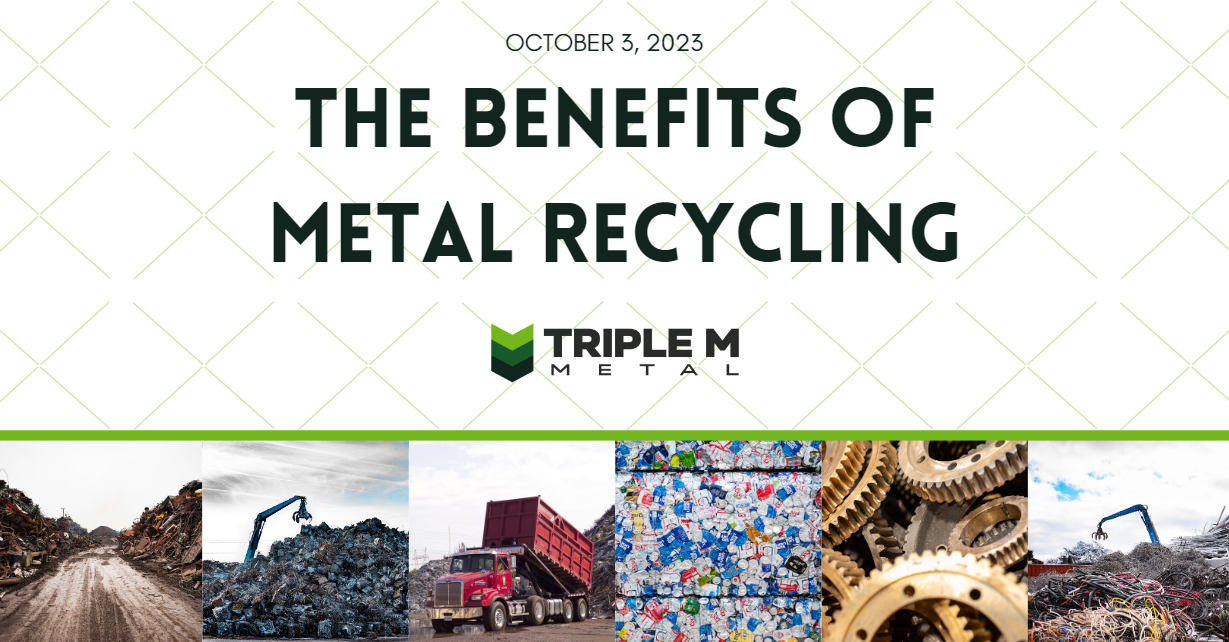The concept of recycling has undergone significant evolution over the years in tandem with the development of modern society. Initially driven by resource scarcity, space constraints, economic considerations, and more recently, environmental concerns, people have increasingly embraced the practice of reusing their belongings. While the emphasis on these motivations has shifted and expanded, they remain pertinent in today’s context.
Metal recycling stands as a powerful contributor to both economic well-being and environmental preservation. When individuals engage in scrapping old metal items, they actively contribute to the collective effort of improving the world. Specifically, we identify five compelling reasons why recycling scrap metal should be a priority.
- Resource Conservation:
-
- Preservation of Natural Resources: Metal recycling plays a crucial role in conserving our planet’s finite resources. By reusing and recycling metals such as aluminum, copper, and steel, we diminish the need for extensive extraction processes, which can lead to severe environmental consequences, such as deforestation, habitat degradation, soil erosion, and water pollution. Recycling ensures that these valuable resources are conserved for the benefit of future generations while simultaneously minimizing the environmental harm linked to resource extraction.
- Energy Savings:
- Lower Energy Consumption: Recycling metal typically requires less energy than extracting and refining raw materials. Mining, processing, and transporting ores and minerals are energy-intensive processes. In contrast, recycling metals involves melting down existing materials, which consumes considerably less energy. This energy savings not only reduces production costs for manufacturers but also leads to a significant reduction in greenhouse gas emissions, contributing to climate change mitigation.
- Environmental Protection:
- Reduced Pollution: The extraction and refining of metals can release harmful pollutants and greenhouse gases into the environment. These pollutants include sulfur dioxide, mercury, and heavy metals, which can harm air and water quality. Recycling metals reduces the need for these polluting processes, leading to cleaner air and water and a reduction in the environmental impact associated with metal production.
- Economic Growth:
- Job Creation: The metal recycling industry generates employment opportunities in various sectors. This includes jobs in collecting, sorting, processing, and manufacturing. Recycling facilities employ skilled and unskilled workers, contributing to local economies and providing livelihoods for individuals and families.
- Revenue Generation: Recycling metals also generates revenue for businesses and municipalities through the sale of scrap metal. This income can be reinvested in recycling programs, infrastructure development, or other community needs, supporting economic growth at the local level.
- Resource Efficiency:
- Extended Product Life: Recycling metals allows for the creation of new products from recycled materials. These recycled materials often exhibit similar quality and properties to virgin metals, and they can be used in various industries, such as construction, automotive, and electronics. Extending the life of these materials reduces the need for constant production of new items, conserving resources and reducing the overall environmental footprint of manufacturing.
In summary, metal recycling offers a range of significant benefits, including resource conservation, energy savings, environmental protection, economic growth, and resource efficiency. These advantages make it a crucial component of sustainable practices and efforts to mitigate the environmental and economic challenges associated with resource extraction and production.

